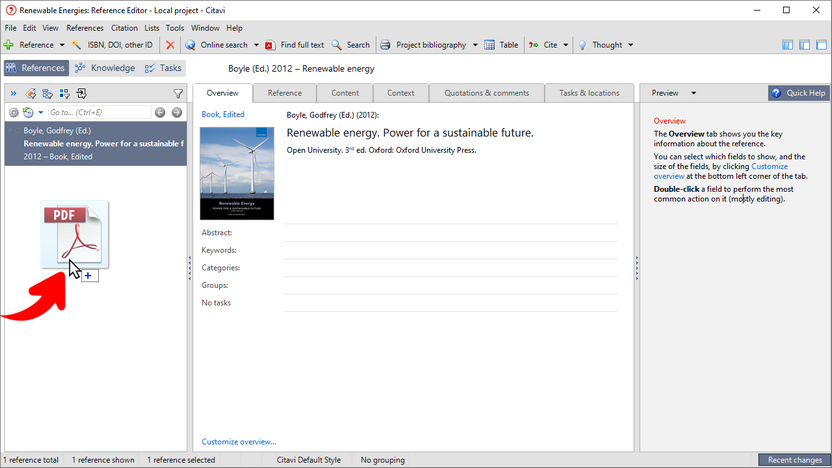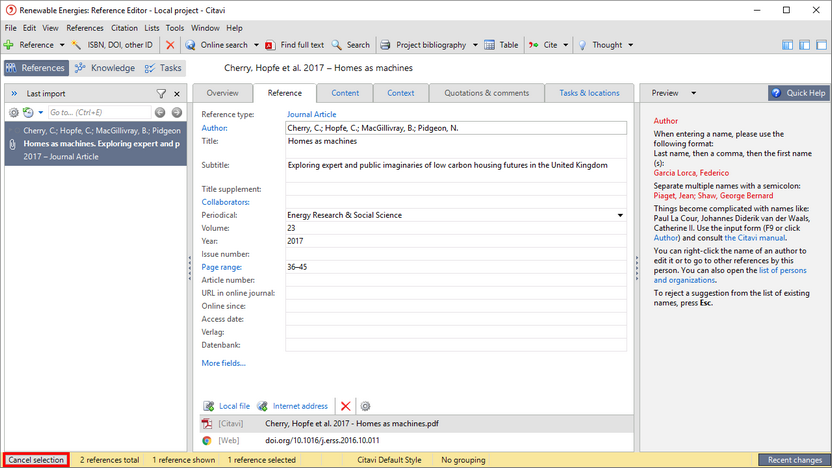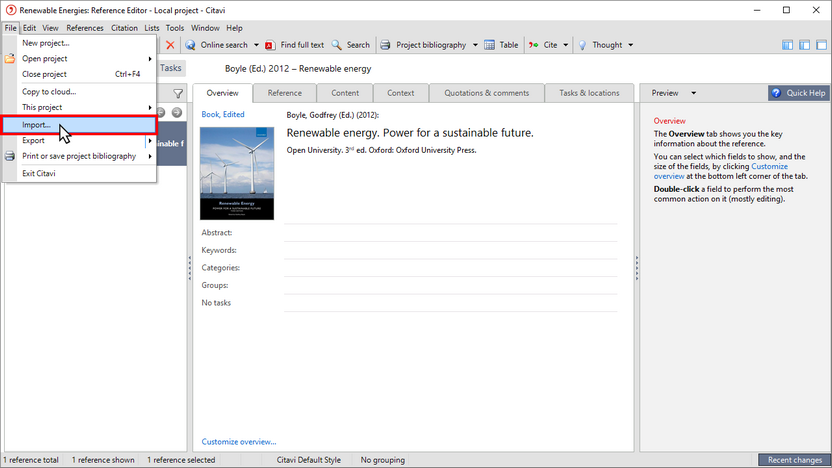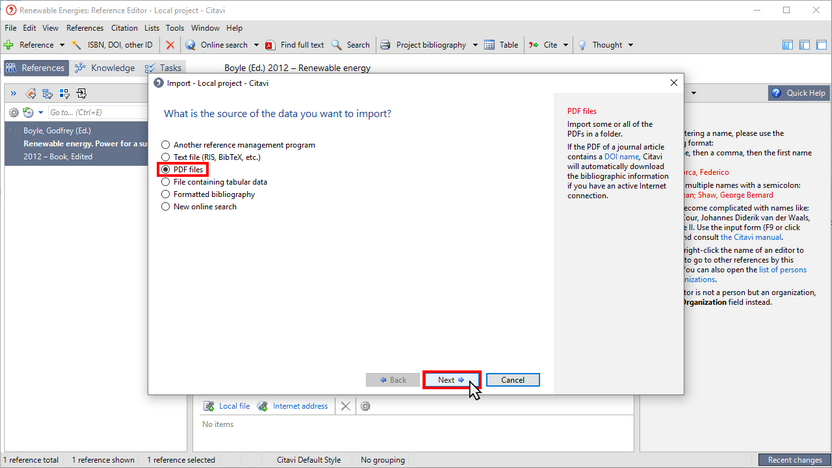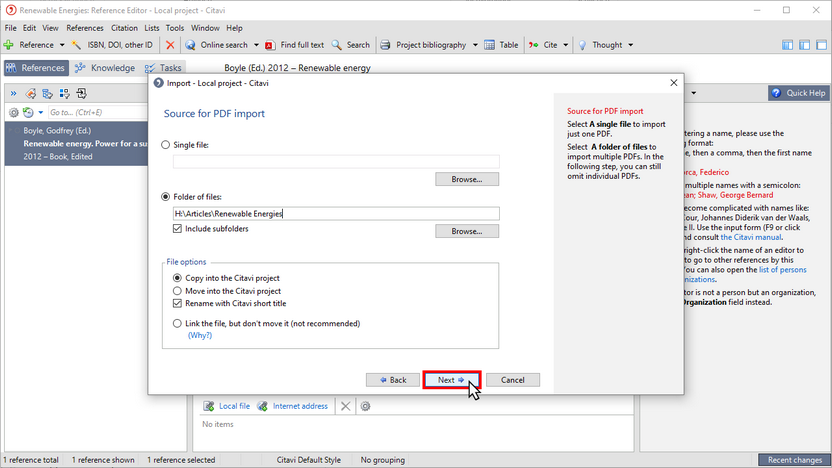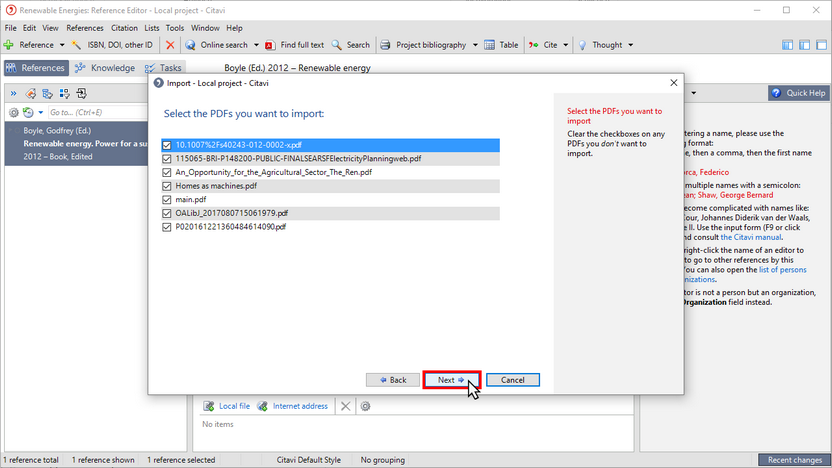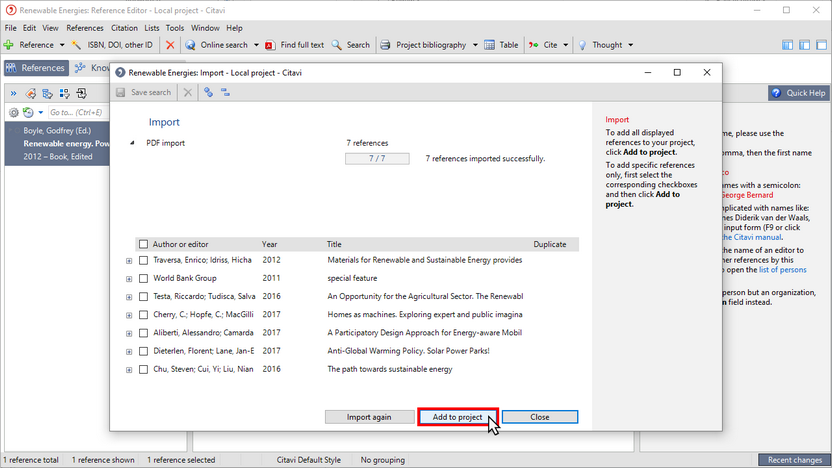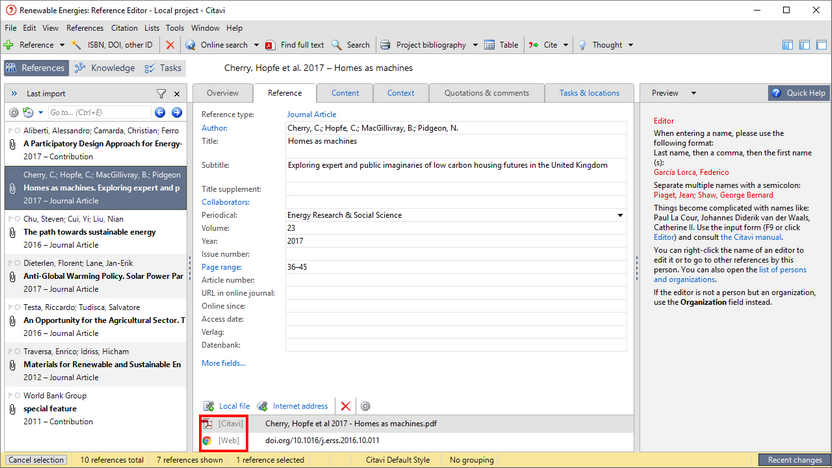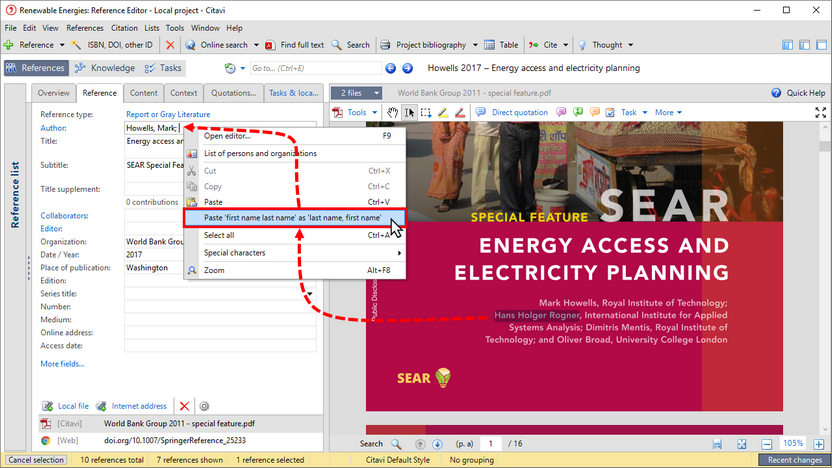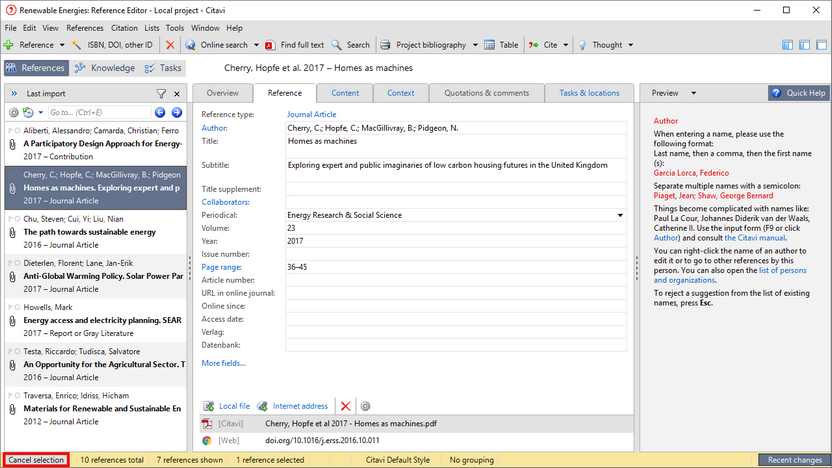Importing PDF Files
You can import PDFs of scholarly articles directly into Citavi. For each PDF, Citavi creates a new reference and searches for its bibliographic information using the DOI name or other ID, as long as one is present in the first five pages of the PDF.
Importing a single PDF file
1 To import one PDF file, simply drag it to the navigation pane.
2 Citavi searches for the bibliographic information online and adds it to your project. Click Cancel selection to display all your references again.
Importing multiple files at once
1 If you want to import multiple PDF files, in the Reference Editor on the File menu, click Import.
2 Select PDF files.
3 Select Folder of files. Include subfolders if you want PDFs in subfolders to be imported as well. Click Browse, select the folder, select the import option you want, and click Next.
4 Clear the corresponding checkbox for PDFs that you do not want to import. Click Next.
5 Citavi searches for the bibliographic information for each PDF file. Click Add to project to add all the references to the current Citavi project.
To only import selected references, select these and then click Add to project.
6 In local projects Citavi creates a copy of each imported PDF file and saves it in the folder \Citavi 6\[Project name]\Attachments by default. You can change these default settings during the import if you want. How do you know where a file is located? [Citavi] stands for the Citavi Attachments folder, [Local] is another folder on your computer, [LAN] is a network drive and [Web] means that the file can be found online.
In cloud projects, Citavi uploads the PDF files to the Citavi Cloud.
7 If the PDF file does not have a DOI name or another identifier, Citavi adds the information from the PDF's properties. Unfortunately, this information is often incomplete. Open the PDF file in the preview by clicking Preview. Then, copy the missing information. The example shows how you can easily copy author names.
8 Click Cancel selection to display all your references again.
What to do if Citavi cannot find bibliographic information
If the bibliographic information is not found, Citavi will try to extract it from the PDF's metadata. If Citavi can't find any information there either, only the PDF file name will be added to the project.
Solution 1: Search first, then attach
Instead of importing the PDF files first, search for their bibliographic information in an appropriate subject database. Either use Citavi's Online Search or search the database directly and then import the information in Citavi. Alternatively, use Google Scholar to find the metadata for a particular article. Once the bibliographic information has been imported into your project, attach the PDF file to the newly added reference.
Solution 2: Import first, then copy
Import the PDF file. If it's just one file, it's fastest to simply drag it to the list of references. If the PDF file is not displayed in the Citavi preview pane, press Alt+P to display it. If you need more space, you can hide the left-hand column by pressing Alt+1. Copy bibliographic information (author, title, journal name, etc.) from the preview pane to the corresponding Citavi field using Ctrl+C to copy and Ctrl+V to insert.
Hint
If author names appear in the order "first name last name", copy the entire name and then right-click in the Author field. On the shortcut menu, select Paste 'first name last name' as 'last name, first name'.
